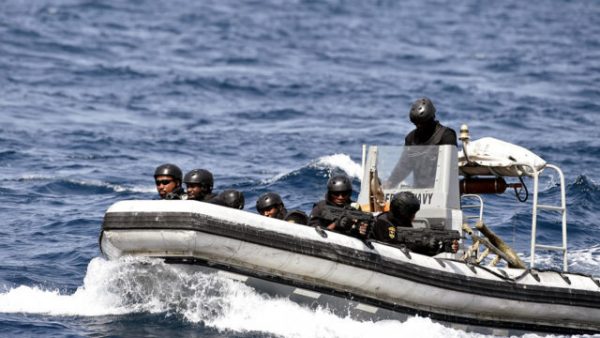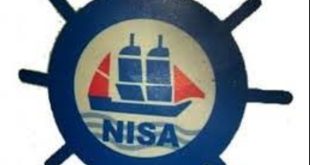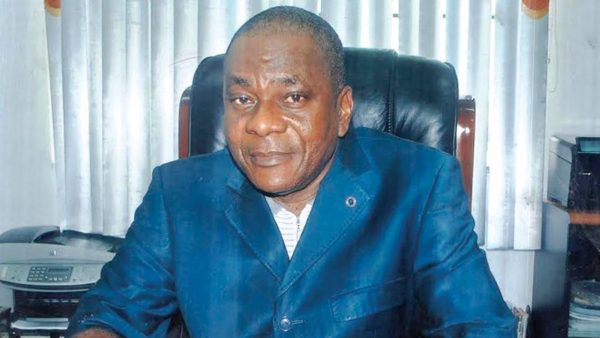
Nigerian waters are gradually becoming safer for vessels, as latest report by the International Maritime Bureau’s (IMB), reveals a downward trend in the spate of pirate attacks on the nation’s waters.
This is coming few weeks after President Muhammadu Buhari signed into law the Suppression of Piracy and other Maritime Offences Bill.
The law is to prevent and suppress piracy, armed robbery and any other unlawful act against a ship, aircraft, and any other maritime graft, howsoever propelled, including fixed or floating platform.
IMB, in its report said 21 incidents have so far been recorded around Nigeria since this year, down from 31 a year ago.

The report indicated that the seas around West Africa remain the world’s most dangerous for piracy, but some of the incidences were not reported.
It stated: “Of the 75 seafarers taken hostage onboard or kidnapped for ransom worldwide so far this year, 62 were captured in the Gulf of Guinea, specifically off the coasts of Nigeria, Guinea, Togo, Benin, and Cameroon.
“Worldwide, the IMB Piracy Reporting Centre recorded 78 incidents of piracy and armed robbery against ships in the first half of 2019, compared with 107 incidents for the same period of 2018. Overall, 57 vessels were boarded, representing 73 per cent of all attacks.
“Pirates killed one person, took 38 crewmembers hostage, and kidnapped a further 37 for ransom,” it stated.
It described the Gulf of Guinea as “world piracy hotspot”, noting that 73 per cent of all kidnappings at sea, and 92 per cent of hostage-takings, took place in the Gulf of Guinea.
“Armed pirates in these high-risk waters kidnapped 27 crew members in the first half of 2019, and 25 in the same period in 2018.
“Two chemical tankers were hijacked, as well as a tug that was then used in another attack. Of the nine vessels fired upon worldwide, eight were off the coast of Nigeria. These attacks took place on average 65 nautical miles off the coast – meaning they are classified as acts of piracy.”
However, the IMB said there are some encouraging signs of improvement, as the region had witnessed “a welcome and marked decrease” for the second quarter (Q2) of 2019, and commended the Nigerian Navy for actively responding to reported incidents by dispatching patrol boats.
Despite the drop in the rate of attacks in the Gulf of Guinea, IMB advised seafarers in the region to remain vigilant, and to report all suspicious activity to regional response centres and the IMB PRC.
Nigeria has experiencing a decrease in reported piracy incidents since Q1 2019.
The IMB had reported 14 incidents of piracy in Q1, compared to 22 in the corresponding period of 2018, even as its waters remain risky for vessels.
Against this backdrop, shipping mogul, Greg Ogbeifun, lauded the current efforts towards overcoming the challenges of piracy in the nation’s waters, even as he strongly advised that the nation should not put all its hopes or eggs in the anti-piracy basket.
Ogbeifun, the immediate past president, Ship Owners Association of Nigeria (SOAN), noted the difference between the newly-enacted Anti-piracy Law as a working tool, and different from identifying the factors that exacerbate piracy as an environmental challenge.
He stressed the need to focus on finding solution to the latter, while using the former as a tool for reducing crime-equilibrium.
He urged policymakers to address piracy from its roots, and lauded the Nigerian Ports Authority (NPA), Managing Director, Hadiza Bala-Usman, for her initiative to directly push up economic activities in the Southeast and South, through a significant slash in the cost of doing port business in the Eastern ports.
Specifically, he said firms should be empowered with favourable policies to create jobs, warning that until the restive, unemployed youths are engaged, the Anti-piracy Law may well remain a pyrrhic victory on paper.
In a related development in Malaysia, the IMB reported that 10 crew members were kidnapped from two fishing boats off eastern Sabah in June, nine of whom were reported to have been released.
This is just as ongoing information-sharing cooperation between the Indonesian Marine Police and the IMB PRC continue to yield positive results. There were also reports of violent attacks in South America.
 MMS PLUS NG – Maritime, Aviation, Business, Oil and Gas News Online Newspaper with coverage in Maritime, Oil and Gas, Aviation, Power and Energy as well as Financial News
MMS PLUS NG – Maritime, Aviation, Business, Oil and Gas News Online Newspaper with coverage in Maritime, Oil and Gas, Aviation, Power and Energy as well as Financial News









